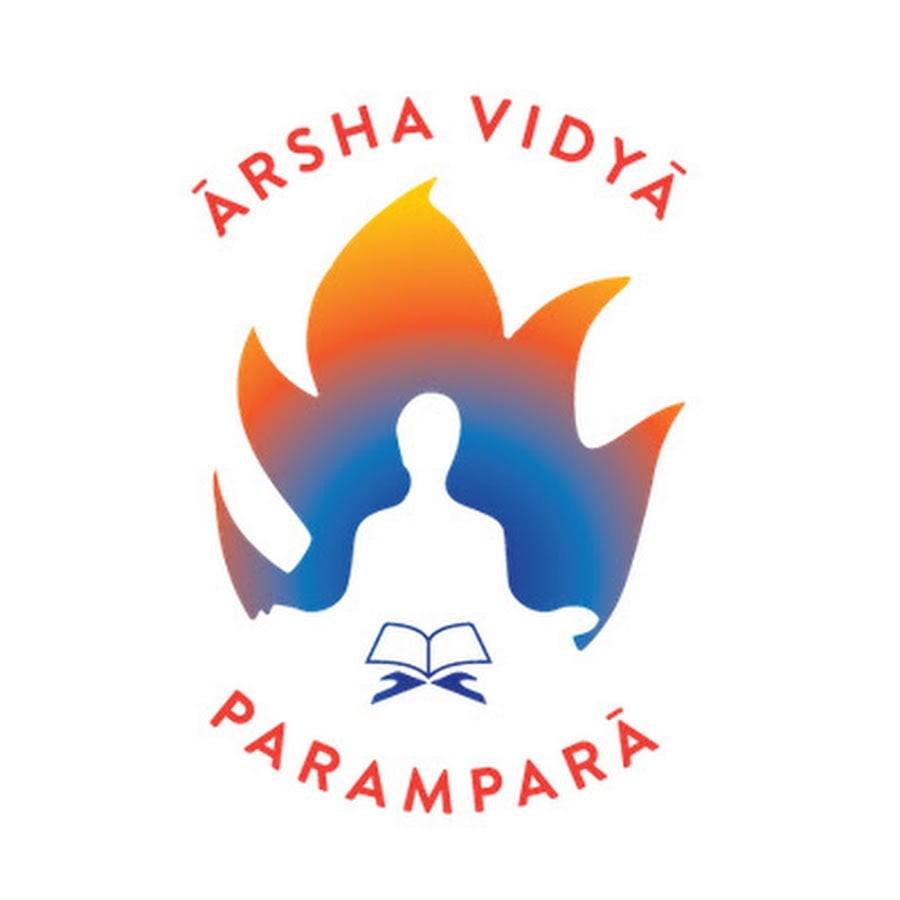Residential camps & retreats
Residential camps & retreats
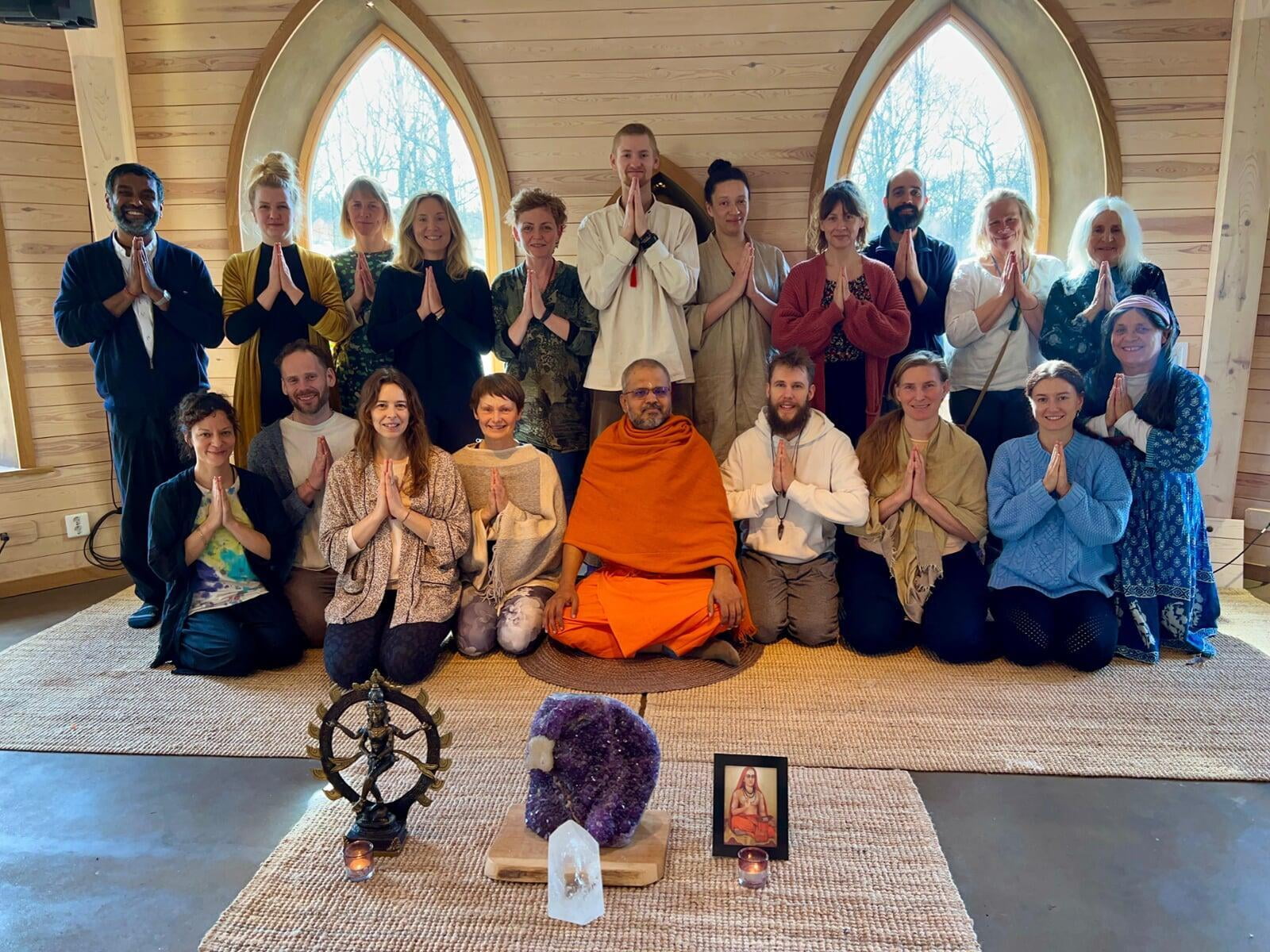
Retreat on "Who am I" - April 2024
This residential retreat was conducted at Svenshogen, Solhalla, Sweden about 50 kms from Gothenburg. The retreat included Guided Meditation Sessions in the mornings. The evenings were filled with Bhajan sessions conducted by Satyadev Barman for about one and a half hours. The lectures of this retreat can be heard here.
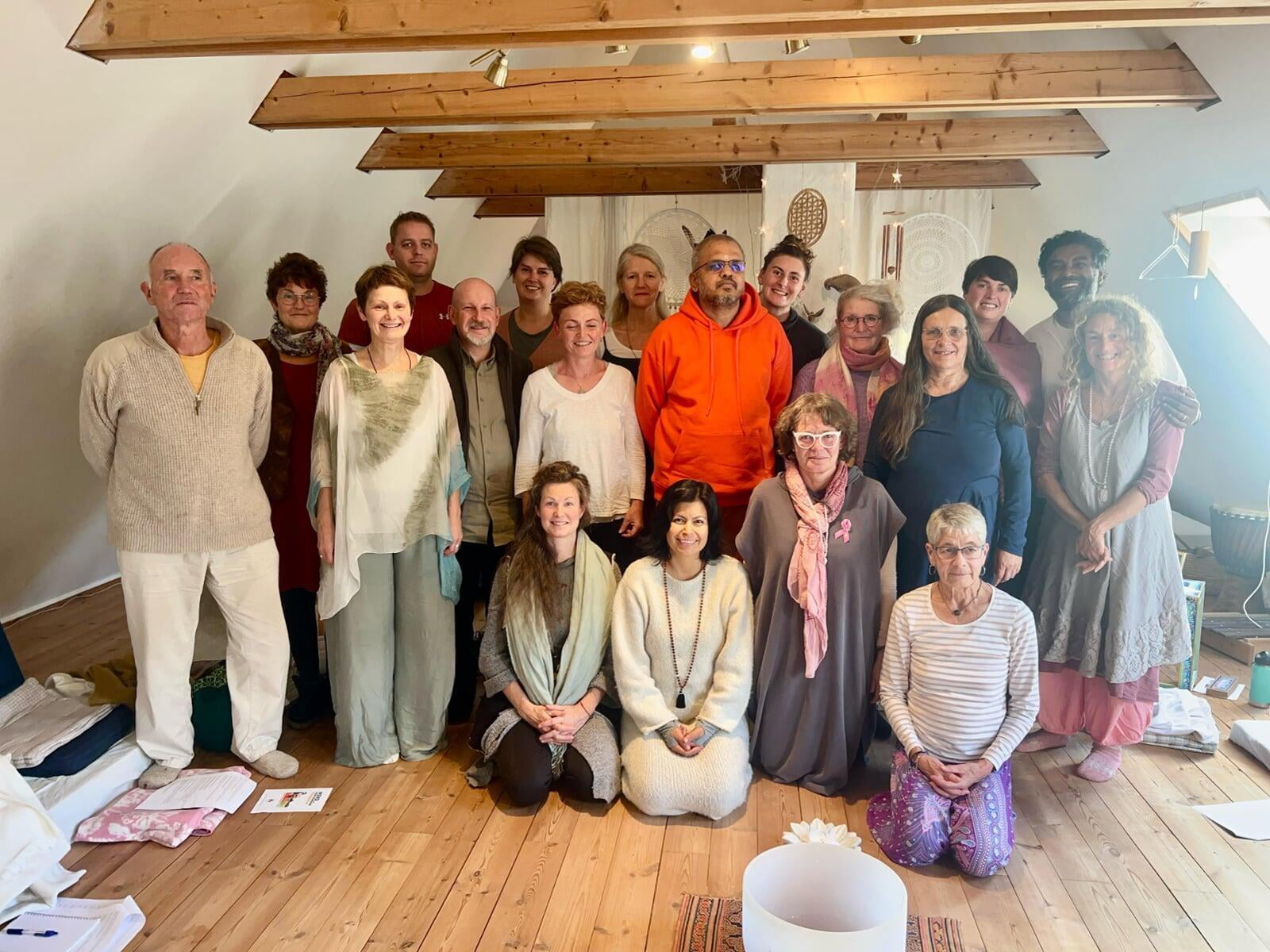
Retreat on "Mind-from Bondage to Freedom" - October 2022
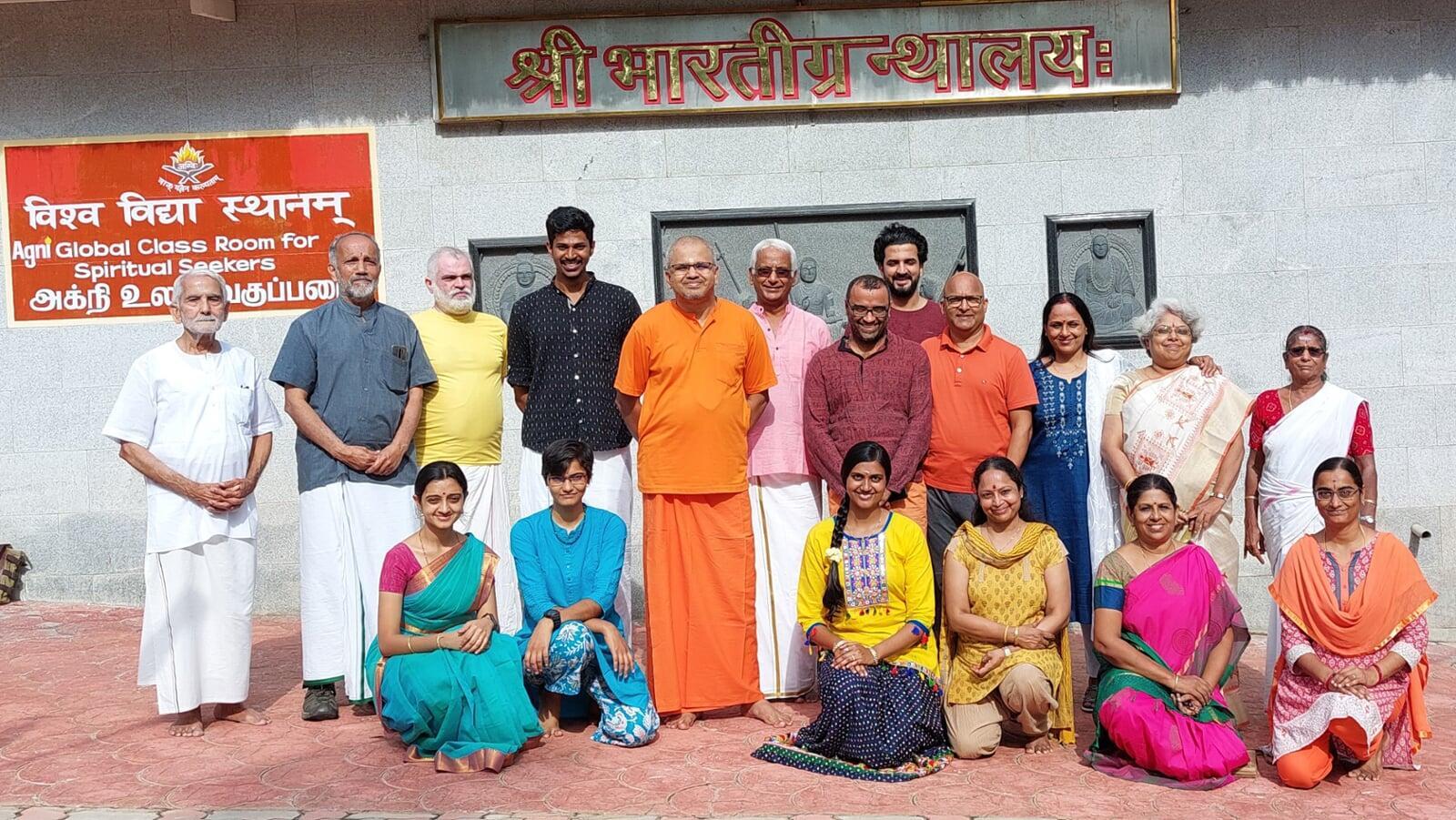
One week camp on "Chandogya Upanishad"- August 2022
A one week camp on the 6th Chapter of the Chandogya Upanishad which culminates in the proclamation of the mahavakya tat tvam asi, was conducted from August 13-20, 2022. This camp was conducted at the Swami Chidbhavananda Ashram, Theni, Tamil Nadu.
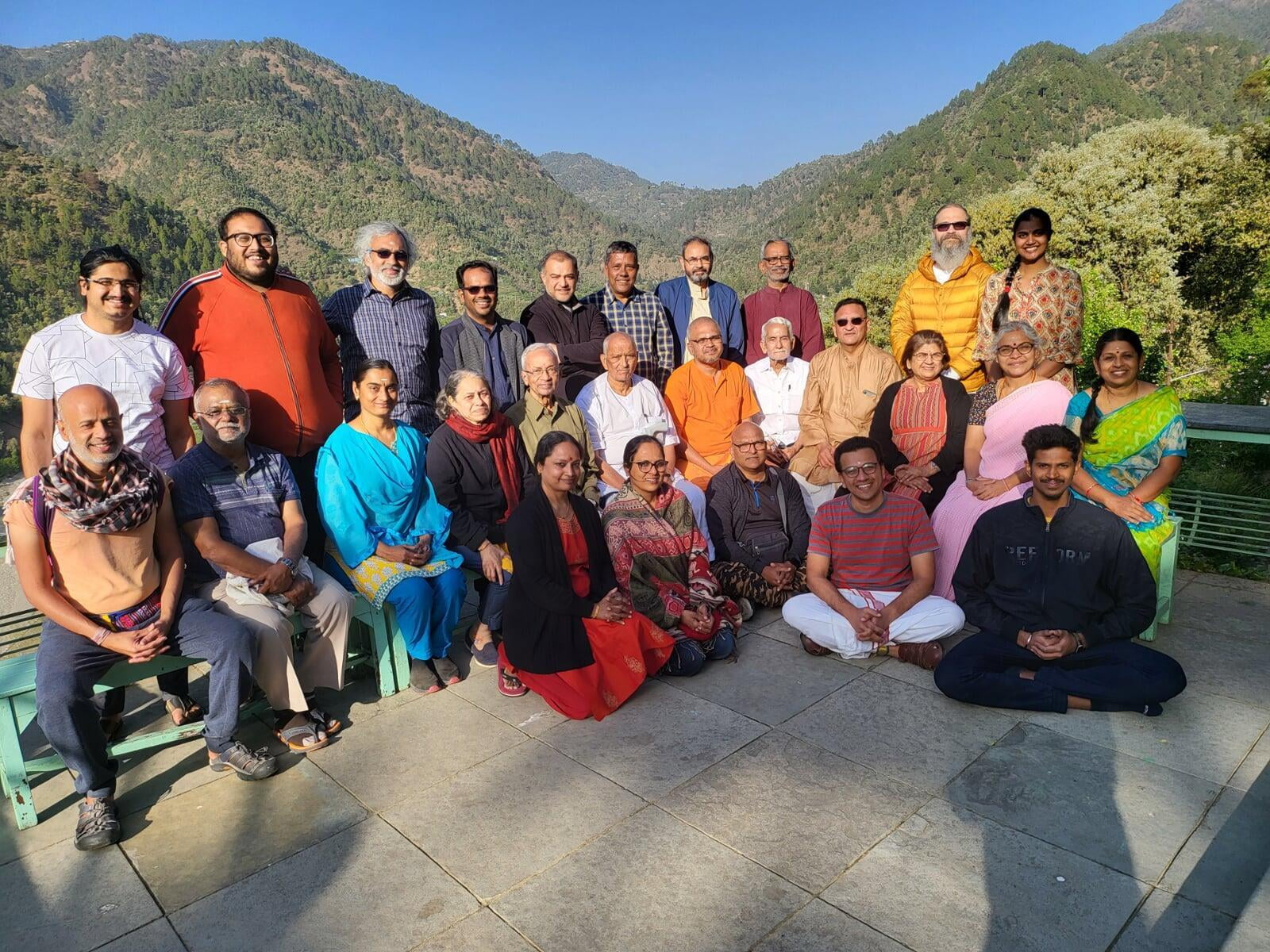
One week camp on "Upadeśa Sāram"-March 2022
Upadeśa Sāram is a set of 30 verses composed by one of the greatest saints of recent times - Bhagavan Ramana Maharshi. This camp was conducted at the Aurobindo Ashram, Madhuban, Nainital in the Himalayas.
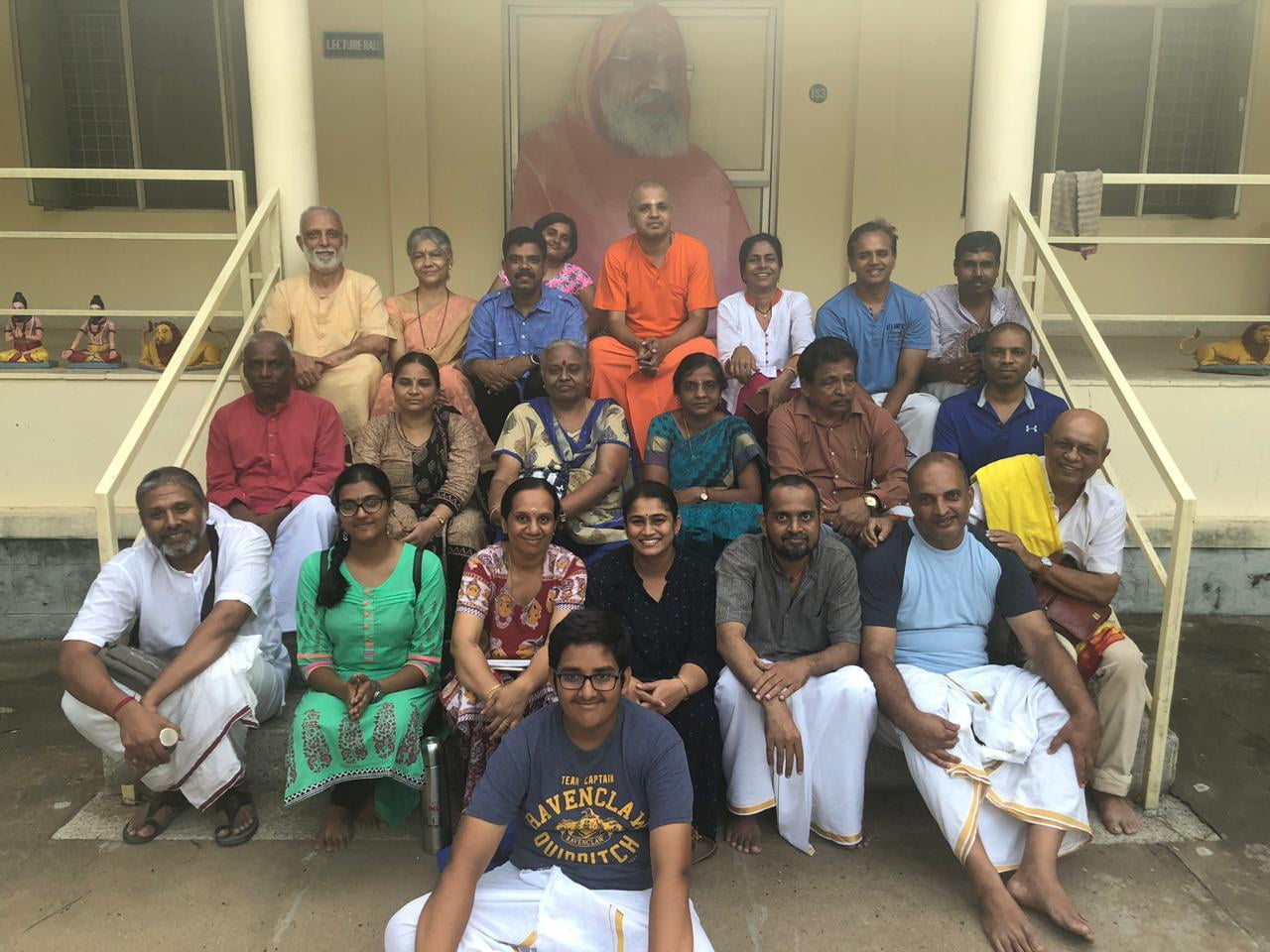
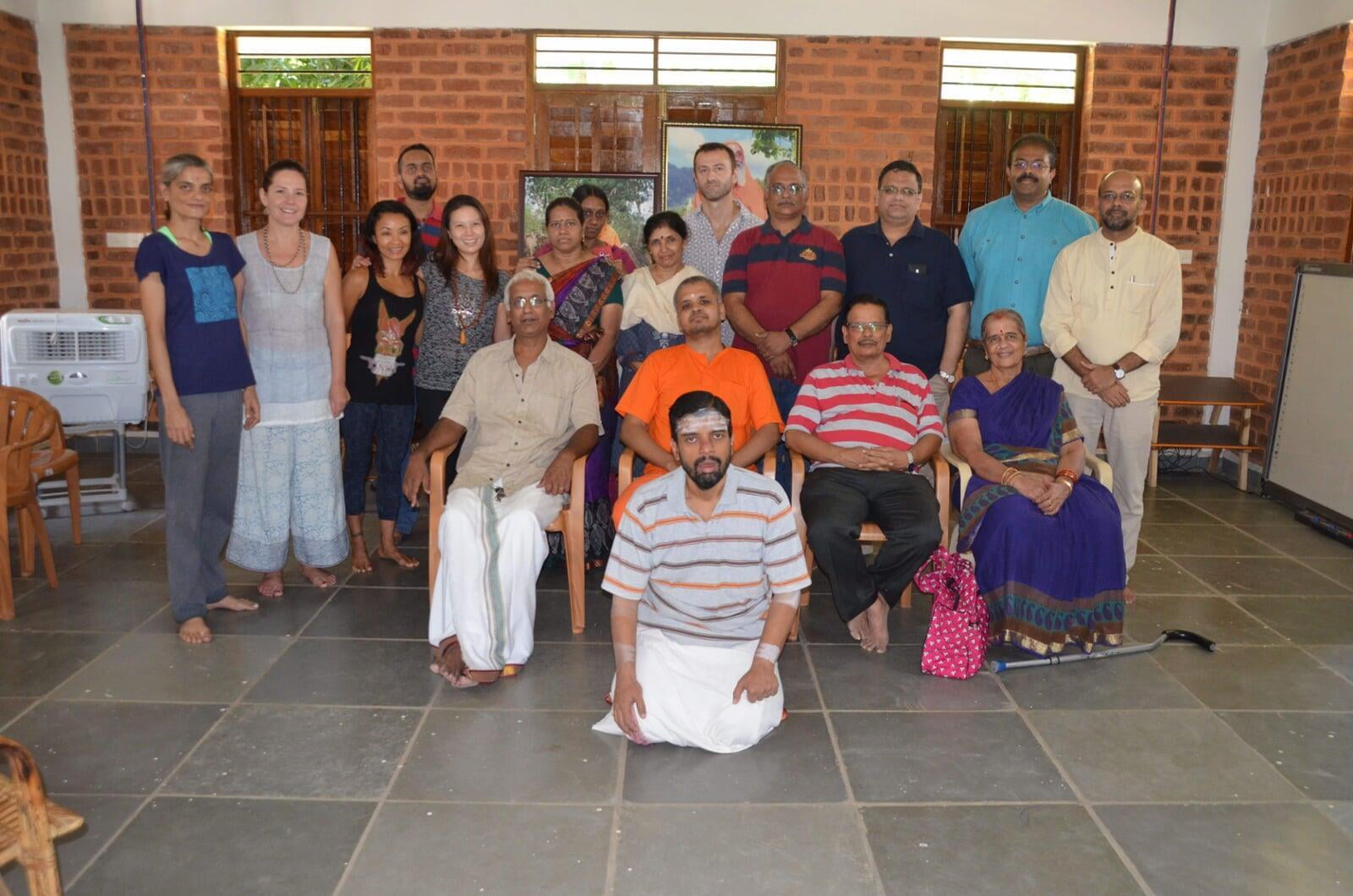
Upadesha Saram is a set of 30 verses composed by one of the greatest saints of recent times - Bhagavan Ramana Maharshi. These verses are a condensed version of the teaching given by Lord Shiva to a group of Rishis who are unfortunately committed to just the performance of Vedic Rituals. Lord Shiva comes down to teach them that one has to rise above the addiction to just rituals and their benefits and finally get to committed to Self Knowledge. Because Self knowledge is the only way to solve the basic human problem of being dissatisfied with whatever we have and obtain. One has to ultimately understand that the happiness we are seeking lies within ourselves and we just have to know how to tap into that endless resource.
The verses deal with the following topics - Limitation of Action, Role of Action, Likes & Dislikes, Harmony in Life, Karma Yoga, Bhakti, Worship, Praise of the Lord, Contemplation, Attitude of Non-Duality, Non-duality as the highest devotion, Quietening the mind, Yoga of knowledge, Self-enquiry, Enquiry into the nature of God, Nature of knowledge & Happiness is the truth of the Self.
The uniqueness of the text is that the teaching is very direct, in the characteristic style of Ramana Maharshi. He takes us straight to the core of the human problem, which is the ego or ahankara, and gives us powerful methods to deal with it.
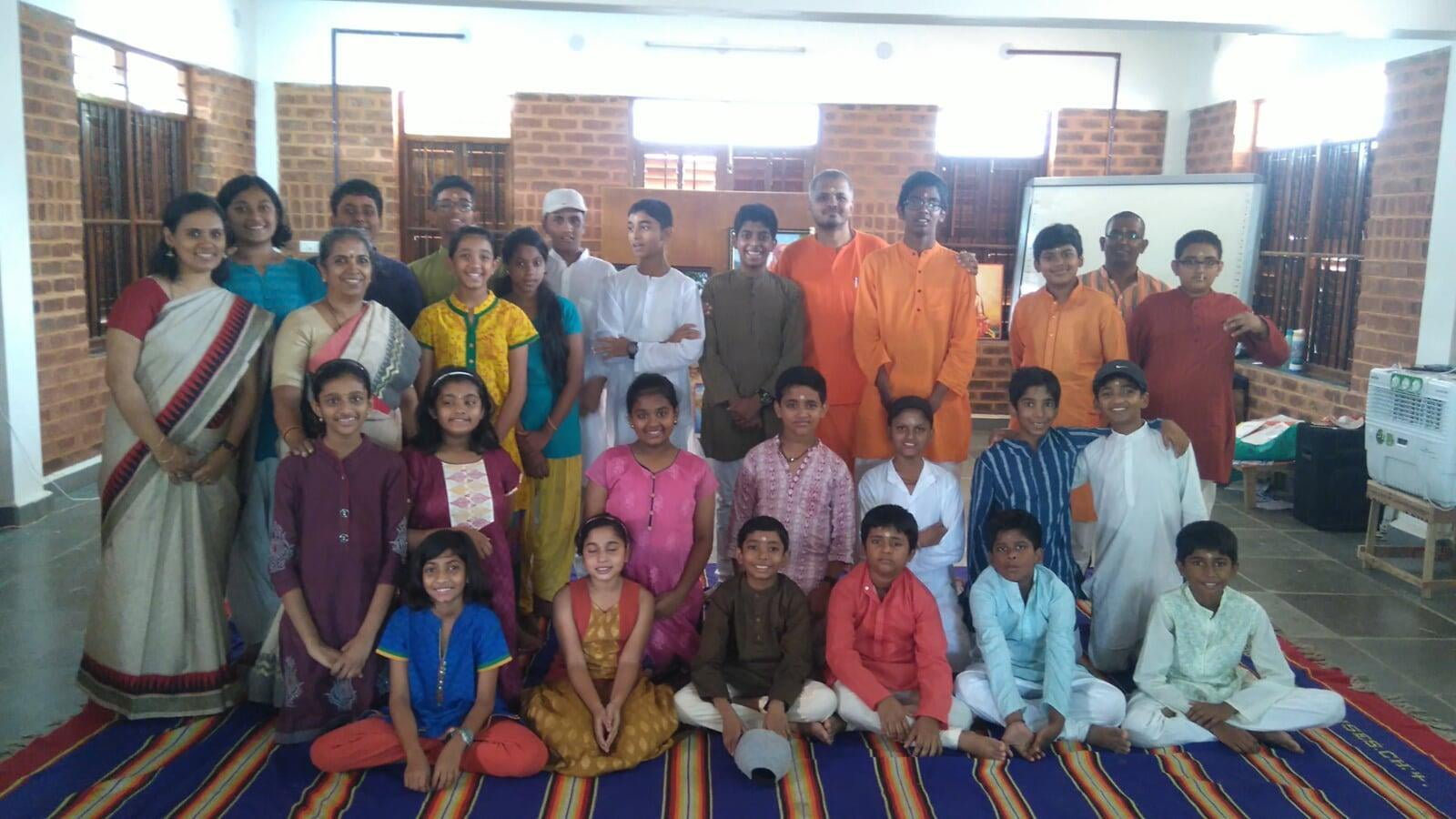
We conducted a traditional Gurukulam style camp for kids, a tradition where students live in and study with the teacher, in May 2016. The camp was conducted by teachers who have spent years learning the Bhagavad Gita & Upanishads directly from Pujya Sri Swami Dayananda Saraswati. This camp intended to help children build their character, develop an attitude of reverence & respect towards Indian culture, heritage & knowledge traditions and inculcate values that contribute towards their emotional growth and well-being.
- Swami Sarvananda Saraswati
- Lalitha Ramachandran - (Camp Coordinator)
- Srinivas Pulluri - (Camp Coordinator)
- Yoga
- Prayer & Shloka classes
- Hinduism/culture/spirituality classes
- Story telling sessions
- Bhangra dancing
- Stories from Mahabharata/Ramayana with emphasis on values & attitudes
- Learning to perform 5 step Puja
- Introduction to ancient Indian knowledge
- Happy Assembly & Talent shows
- Spoken Sanskrit
- Classical singing
- Temple Tour(s)
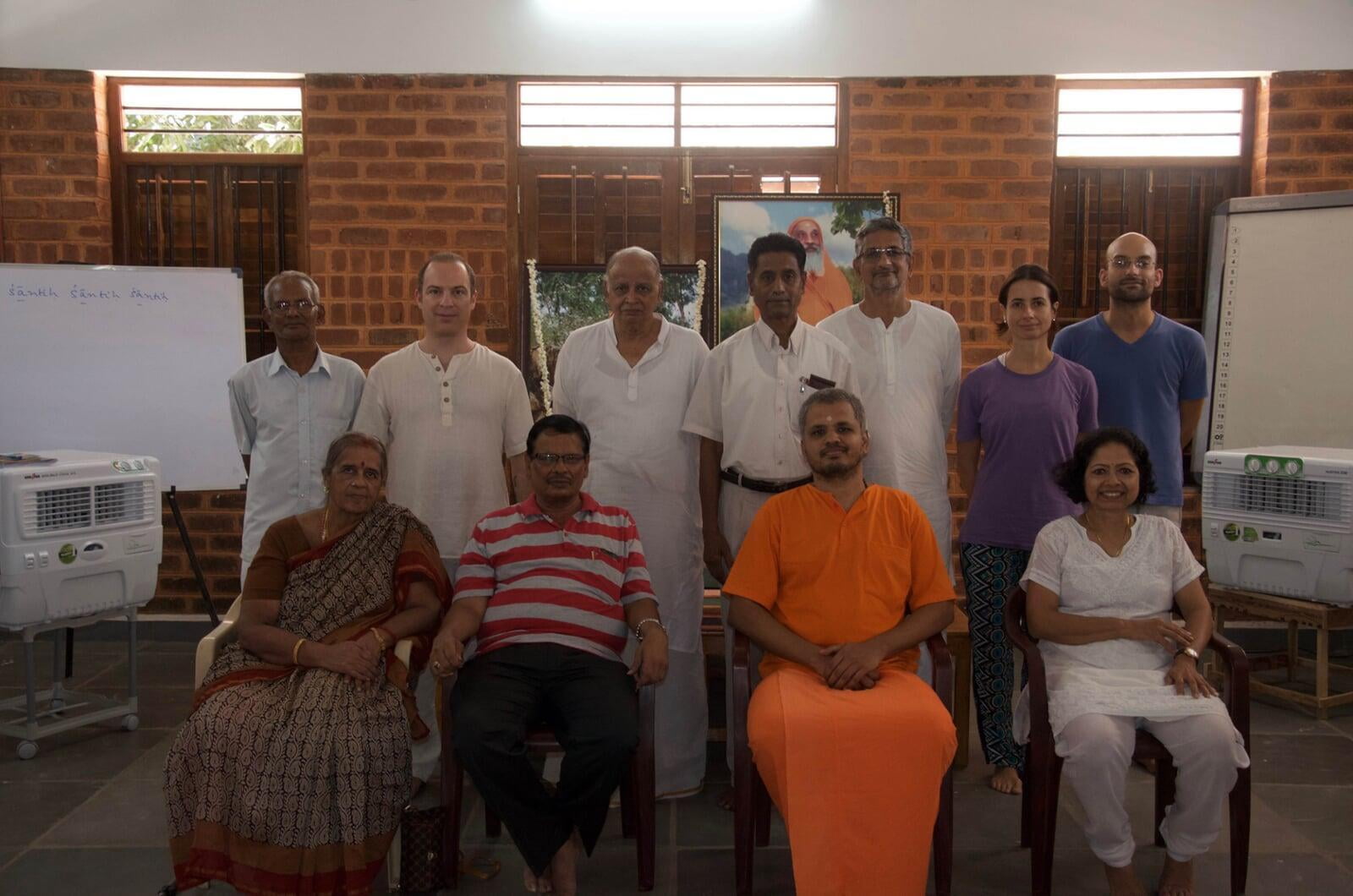
Yaksha Prashna is a profound section from the Mahabharata, where Lord Yama asks a set of 123 questions, to Yudhishthira, on a variety of topics concerning ethics, code of conduct, knowledge of oneself, pursuit of the truth and the qualifications required for the pursuit, attitude to life in general, Universal order, appreciation of divinity in the world around us etc.
The participants were from India, Brazil & Italy. There were 2 Vedanta classes for an hour every day. There were also classes on Yoga & basic Sanskrit pronunciation including learning to chant some basic mantras and prayers. There was a question & answer session for an hour everyday in the evening where the campers got their questions answered.
The camp was conducted by Swami Sarvananda.
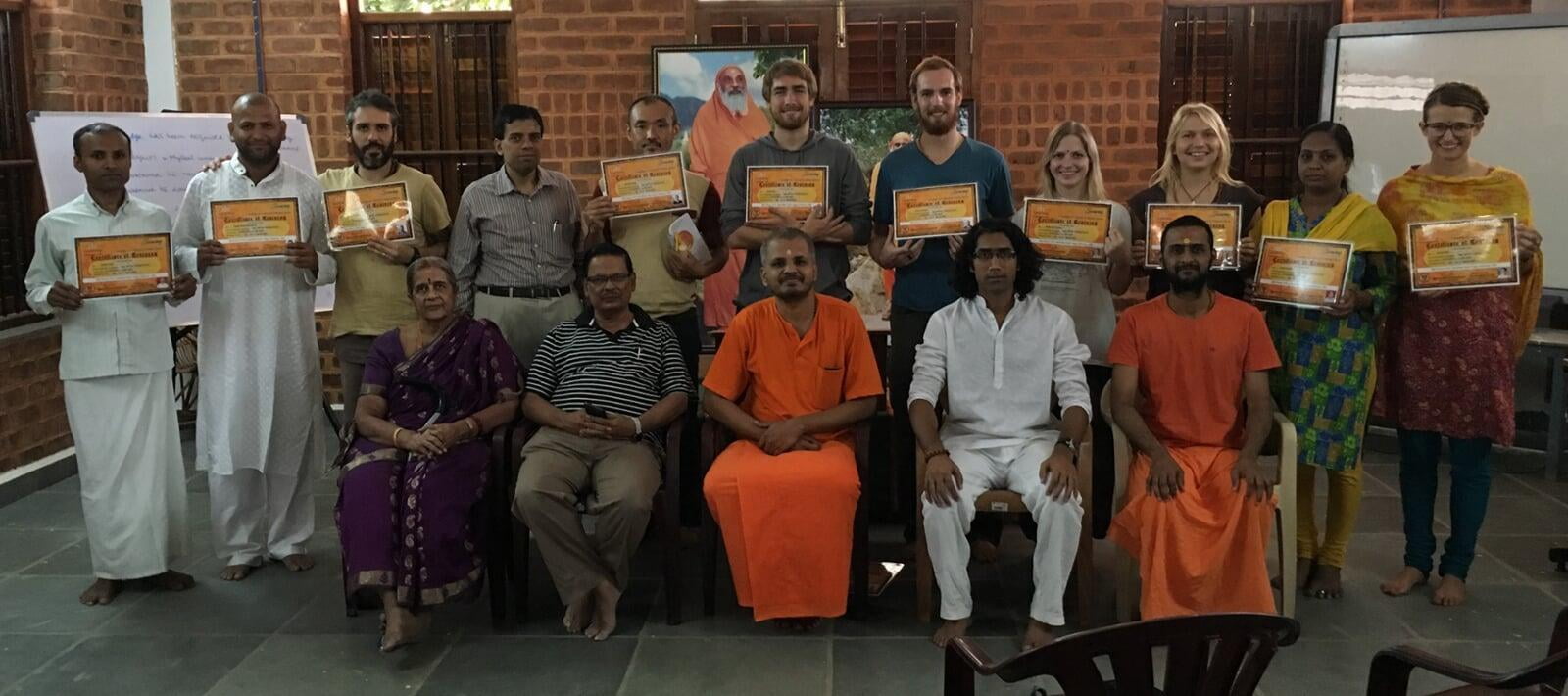
Basis of Yoga
Yoga is much more than just a physical exercise. It is a seamless integration of physical, mental & spiritual fitness. In short, Yoga is an attitude towards life as a whole. And restricting Yoga to the physical level makes Yoga very very incomplete. Even though physical component is a very important. An understanding of the bigger picture of Yoga and it's eternal relevance to humanity has to be established carefully through a systematic teaching of Vedanta. Vedanta is the final portion of the Vedas comprising of what are called the Upanishads. The Upanishads talk about the nature of oneself (Atma/Soul) and establish that the truth of the individual, outside universe & God as one and the same. This understanding is purely cognitive.
Yoga, a Sanskrit word, also means union/oneness. Hence Yoga and Vedanta are not separate from one another but in fact are one and the same. The teaching of Vedanta also has been coming down for generations in the form of Guru (teacher)/ Sishya (student) tradition. And it has been carefully preserved completely to the present day. This teaching also has to be handled by a competent teacher who has been exposed to the teaching for a length of time.
Appreciation of Yoga is also incomplete without understanding the culture, value system of the society in which Yoga originated and thrived. In fact the first 2 steps (Yama and Niyama) of Ashtanga (8 limbs), of Patanjali Yoga Sutra, deal with values and attitudes.
The course
Equal importance was given to the Yoga of both the body (Hatha Yoga) and the mind (Jnana/Vedanta/Spirituality). Asanas/pranayama were taught in the traditional Hatha Yoga way.
The course included about 4 hours of Hatha Yoga (Asanas & Pranayama) along with 2 classes every day in Vedanta/Yoga Sutra, 1 class on Chanting prayers in Sanskrit with a detailed overview of science of phonetics (sound production of Sanskrit alphabets), 1 satsang in the evening that included some stories from the Mahabharata, singing of bhajans, meaning of certain forms like Dakshinamurti/Ganesha, certain assorted topics on Indian culture and Question/Answer sessions, every day. There were also some sessions on the anatomy of the human body (by a professor of Anatomy) with particular reference to Yoga.
In the 30 day course the first 2 weeks were devoted to teaching various postures (asanas) and breathing techniques (pranayama) of Hatha yoga. The third week was spent in alignment (perfecting the postures) and adjustment (helping fellow students perfect their postures). The fourth week was utilised for making the student into a competent teacher.
Classes on Yoga anatomy were also held.
Trips to nearby spiritual/religious places will be organised on weekly holidays.
The course faculty included Swami Sarvananda, Sanjeet Prasad and Swami Viswatmananda.
EligibilityMen & women who want to- Become yoga teachers
- Get an introduction to Vedanta (Indian Spirituality) along with training in Yoga
- Improve own health & fitness
- Use Yoga as a Sadhana (tool) for Moksha (liberation)
The course was certified by Yoga Alliance.
Yoga is much more than just a physical exercise. It is a seamless integration of physical, mental & spiritual fitness. In short, Yoga is an attitude towards life as a whole. And restricting Yoga to the physical level makes Yoga very very incomplete. Even though physical component is a very important. An understanding of the bigger picture of Yoga and it's eternal relevance to humanity has to be established carefully through a systematic teaching of Vedanta. Vedanta is the final portion of the Vedas comprising of what are called the Upanishads. The Upanishads talk about the nature of oneself (Atma/Soul) and establish that the truth of the individual, outside universe & God as one and the same. This understanding is purely cognitive.
Yoga, a Sanskrit word, also means union/oneness. Hence Yoga and Vedanta are not separate from one another but in fact are one and the same. The teaching of Vedanta also has been coming down for generations in the form of Guru (teacher)/ Sishya (student) tradition. And it has been carefully preserved completely to the present day. This teaching also has to be handled by a competent teacher who has been exposed to the teaching for a length of time.
Appreciation of Yoga is also incomplete without understanding the culture, value system of the society in which Yoga originated and thrived. In fact the first 2 steps (Yama and Niyama) of Ashtanga (8 limbs), of Patanjali Yoga Sutra, deal with values and attitudes.
- Become yoga teachers
- Get an introduction to Vedanta (Indian Spirituality) along with training in Yoga
- Improve own health & fitness
- Use Yoga as a Sadhana (tool) for Moksha (liberation)
